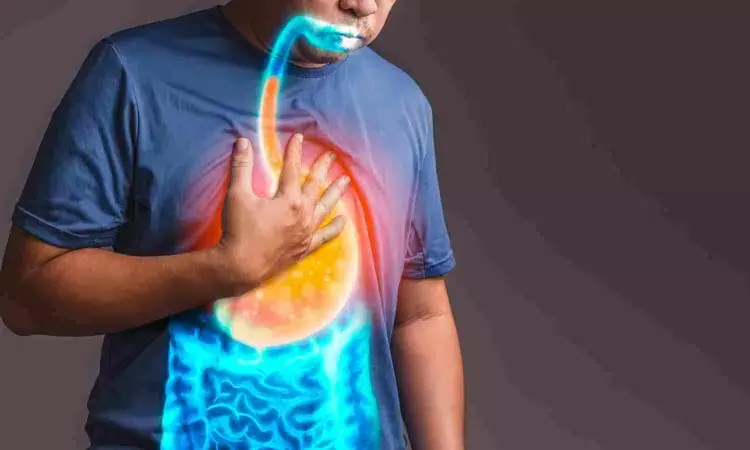- Home
- Medical news & Guidelines
- Anesthesiology
- Cardiology and CTVS
- Critical Care
- Dentistry
- Dermatology
- Diabetes and Endocrinology
- ENT
- Gastroenterology
- Medicine
- Nephrology
- Neurology
- Obstretics-Gynaecology
- Oncology
- Ophthalmology
- Orthopaedics
- Pediatrics-Neonatology
- Psychiatry
- Pulmonology
- Radiology
- Surgery
- Urology
- Laboratory Medicine
- Diet
- Nursing
- Paramedical
- Physiotherapy
- Health news
- Fact Check
- Bone Health Fact Check
- Brain Health Fact Check
- Cancer Related Fact Check
- Child Care Fact Check
- Dental and oral health fact check
- Diabetes and metabolic health fact check
- Diet and Nutrition Fact Check
- Eye and ENT Care Fact Check
- Fitness fact check
- Gut health fact check
- Heart health fact check
- Kidney health fact check
- Medical education fact check
- Men's health fact check
- Respiratory fact check
- Skin and hair care fact check
- Vaccine and Immunization fact check
- Women's health fact check
- AYUSH
- State News
- Andaman and Nicobar Islands
- Andhra Pradesh
- Arunachal Pradesh
- Assam
- Bihar
- Chandigarh
- Chattisgarh
- Dadra and Nagar Haveli
- Daman and Diu
- Delhi
- Goa
- Gujarat
- Haryana
- Himachal Pradesh
- Jammu & Kashmir
- Jharkhand
- Karnataka
- Kerala
- Ladakh
- Lakshadweep
- Madhya Pradesh
- Maharashtra
- Manipur
- Meghalaya
- Mizoram
- Nagaland
- Odisha
- Puducherry
- Punjab
- Rajasthan
- Sikkim
- Tamil Nadu
- Telangana
- Tripura
- Uttar Pradesh
- Uttrakhand
- West Bengal
- Medical Education
- Industry
Risk for GERD higher with GLP-1 RA use compared to SGLT-2 inhibitor use: Study

A population-based cohort study emulating a target trial estimated the effect of glucagon-like peptide-1 receptor agonists (GLP-1 RAs) compared with sodium-glucose cotransporter-2 (SGLT-2) inhibitors on the risk for gastroesophageal reflux disease (GERD) and its complications in patients with type 2 diabetes. The study found that incidence of GERD and its complications was higher among GLP-1 RA users, risk of GERD-related complications higher for smokers, patients with obesity, and patients with gastric-related comorbidities. The results are published in Annals of Internal Medicine.
Researchers from McGill University and Lady Davis Institute, Jewish General Hospital in Montreal used the U.K. Clinical Practice Research Datalink to create a target trial emulation framework that evaluated the risk for GERD and its complications in patients aged 18 years or older with type 2 diabetes initiating GLP-1 RAs or SGLT-2 inhibitors. The study included 24,708 new users of GLP-1 RAs who had a median follow-up of 3 years and 89,096 new users of SGLT-2 inhibitors who had a median follow-up of 2.7 years. The primary outcome was diagnosis of GERD and secondary outcome was complications of GERD.
The researchers found that during follow-up the incidence rate for GERD was 7.9 per 1,000 person years. 138 total complications of GERD were observed, with over 90% of them being Barrett esophagus. At three-year follow-up, the risk ratio (RR) was 1.27 for GERD and 1.55 for GERD complications in GLP-1 RA users compared with SGLT-2 inhibitor users. Secondary analyses found that risks for GERD were higher overall for each GLP-1 RA type except lixisenatide, and risks for GERD complications were higher in ever-smokers, patients with obesity, and patients with gastric comorbidities.
The results suggest the risk for GERD and its complications is higher among patients with type 2 diabetes using GLP-1 RAs versus SGLT-2 inhibitors. Clinicians and patients should be aware of the possible adverse effect of GLP-1 RAs on GERD.
Reference:
Yunha Noh, Hui Yin, Oriana H.Y. Yu, et al. Glucagon-Like Peptide-1 Receptor Agonists and Risk for Gastroesophageal Reflux Disease in Patients With Type 2 Diabetes: A Population-Based Cohort Study. Ann Intern Med. [Epub 15 July 2025]. doi:10.7326/ANNALS-24-03420
Dr Kamal Kant Kohli-MBBS, DTCD- a chest specialist with more than 30 years of practice and a flair for writing clinical articles, Dr Kamal Kant Kohli joined Medical Dialogues as a Chief Editor of Medical News. Besides writing articles, as an editor, he proofreads and verifies all the medical content published on Medical Dialogues including those coming from journals, studies,medical conferences,guidelines etc. Email: drkohli@medicaldialogues.in. Contact no. 011-43720751


